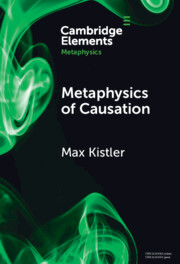Refine search
Actions for selected content:
1 results

Metaphysics of Causation
-
- Published online:
- 03 January 2025
- Print publication:
- 16 January 2025
-
- Element
-
- You have access
- Open access
- HTML
- Export citation
